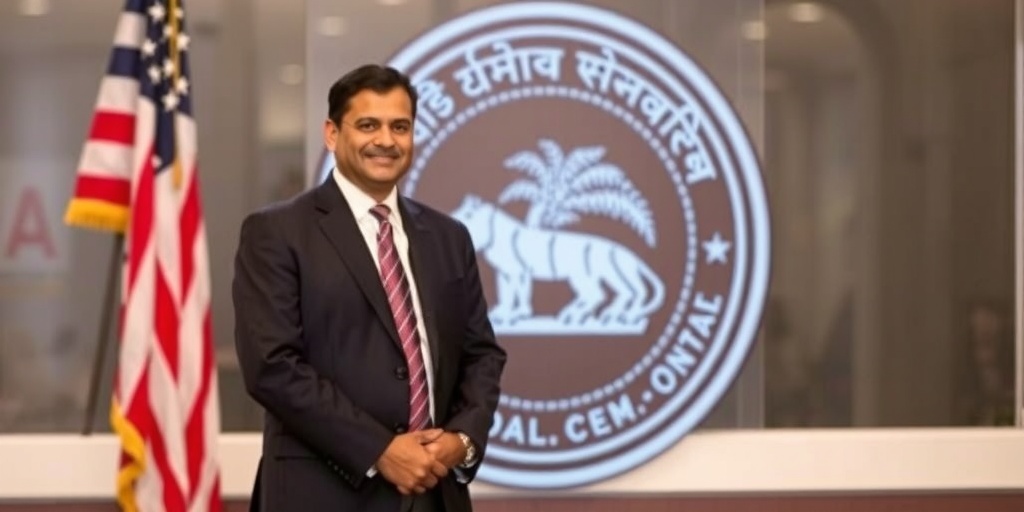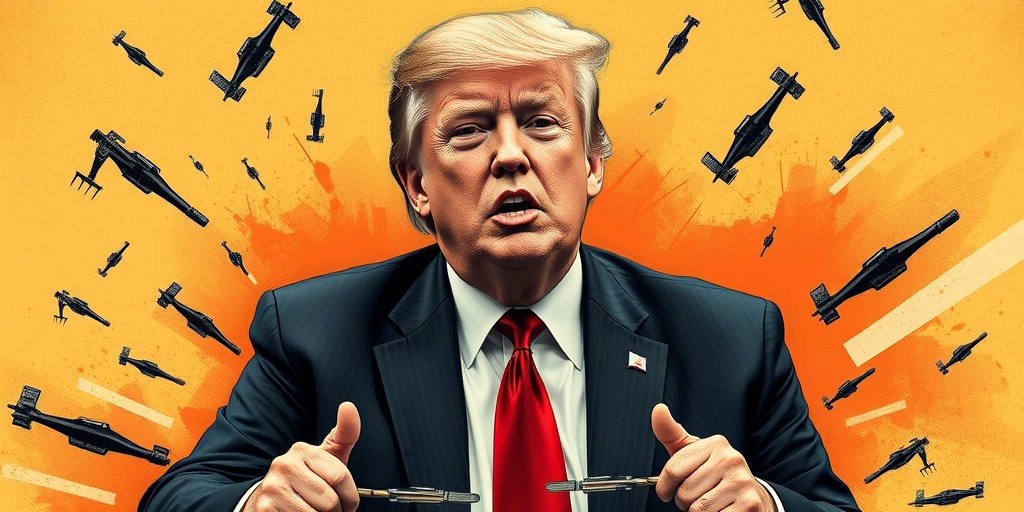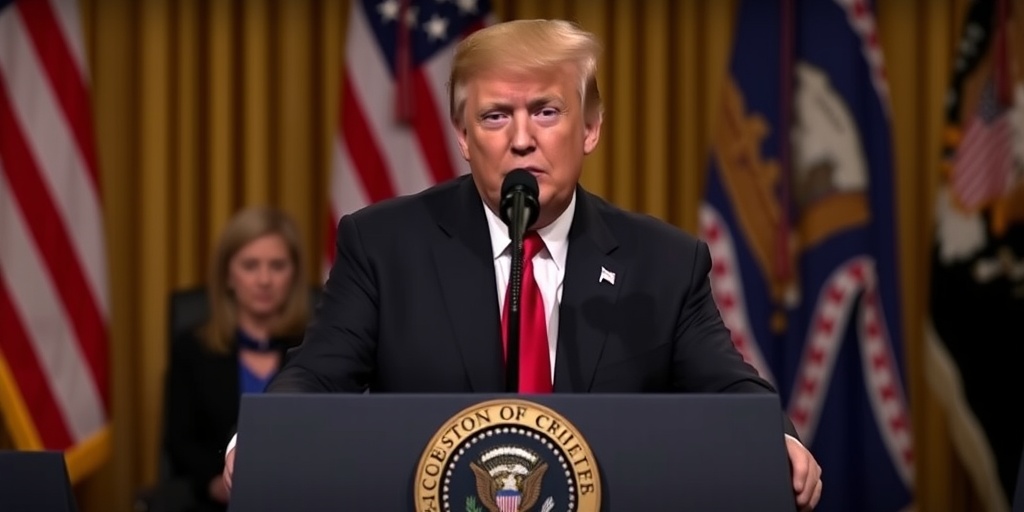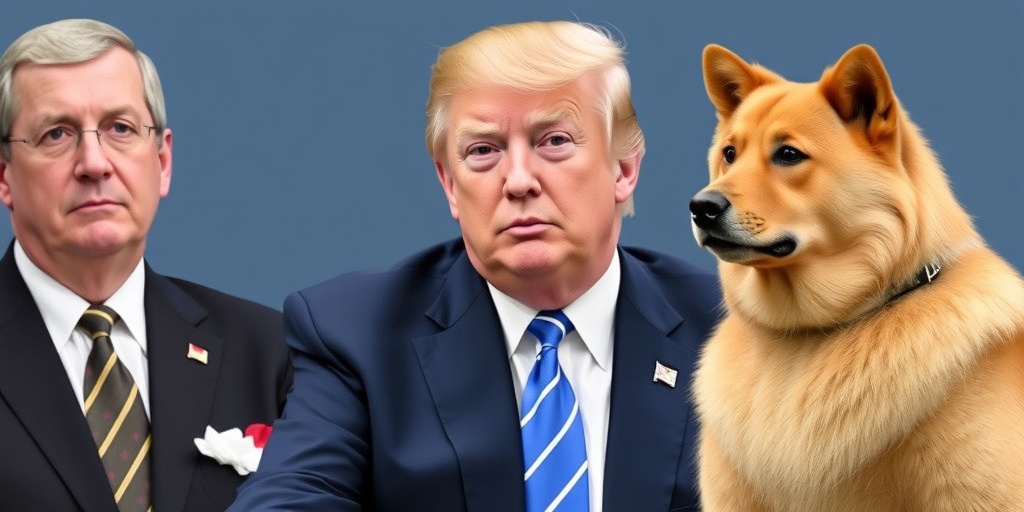Now Reading: Patel Kicks Off New Era at F.B.I. with First Weekly Call
-
01
Patel Kicks Off New Era at F.B.I. with First Weekly Call
Patel Kicks Off New Era at F.B.I. with First Weekly Call

Kash Patel’s First Steps as F.B.I. Director Amidst Controversy and Mixed Reactions
In a development that has drawn significant attention and scrutiny, Kash Patel, the newly appointed director of the FBI, faced the agency’s top agents in a videoconference call that left many uncertain about the path forward for an organization grappling with its reputation. The call occurred against the backdrop of ongoing tensions between the Trump administration and the FBI, heightened by Patel’s previous criticisms of the bureau, especially regarding its investigations into Donald Trump and the events surrounding the January 6, 2021, Capitol riot.
The anticipation preceding the conference was palpable. Seasoned agents were particularly eager to hear Patel’s approach to steering the FBI through a turbulent period. The 30-minute session was filled with a mix of anticipated objectives and surprising revelations. From discussions on tackling violent crime to safeguarding national security, Patel touched on several key priorities that seemed aligned with traditional law enforcement objectives. However, his informal demeanor raised eyebrows, as he chose to eschew a briefing book—usually regarded as essential for serious discourse—and balked at the idea of formal meetings or dressing in suits.
One major question that emerged during the call was whether Patel would maintain the regularity of the weekly conference calls established by his predecessor, Christopher A. Wray. Wray’s own tenure followed an abrupt ending when Donald Trump dismissed James B. Comey in 2017. Uncertainty about the continuity of these meetings underscores the unpredictable nature of Patel’s leadership style and may signal significant shifts in the FBI’s operational culture.
At one point during the call, Patel unexpectedly stepped away, leaving his acting deputy Robert C. Kissane and acting No. 3 Jodi Cohen to occupy the time—a move that some viewed as an unorthodox approach for the newly appointed director. Indicative of a potential strategy to connect with the public and improve the agency’s image, Patel expressed his desire for the FBI to collaborate with the Ultimate Fighting Championship (UFC), a suggestion that aligned with his fitness interests and personal connections, particularly with his incoming deputy, Dan Bongino, a known UFC enthusiast.
Patel’s background is contentious. His previous role as a surrogate for Trump’s re-election campaign and his authorship of a children’s book that depicted Trump as “King Donald” have raised questions about his purported neutrality in a position that requires impartiality. During the fiftieth address, he claimed the need to rebuild public trust in the FBI—a task complicated by his past efforts to undermine the credibility of the organization during its investigations into the ties between the Trump campaign and Russia. Observers noted a disconcerting inconsistency as he depicted himself as apolitical while failing to acknowledge the implications of his previous actions on the FBI’s reputation.
Adding to the confusion, Patel appeared to conflate the terms ‘intelligence’ and ‘counterintelligence’ during the call, suggesting that he may lack a clear understanding of the critical distinctions between these domains, which play essential roles in national security. The FBI’s intelligence branch focuses on managing the agency’s intelligence strategy, while the counterintelligence division is dedicated to safeguarding national secrets—both functions vital for the organization’s efficacy and integrity.
Furthermore, his assumption of the dual role as acting chief of the Bureau of Alcohol, Tobacco, Firearms, and Explosives (ATF) adds to the complexities of Patel’s responsibilities. This dual appointment raises further questions about his capacity to effectively lead both agencies during a time of reform and scrutiny.
As the FBI stands at a crossroads, the implications of Patel’s leadership style and priorities remain uncertain. While the call aimed to present a steady hand at the helm, the mixed reactions underscore the skepticism that exists within the ranks of the FBI regarding the future direction under his guidance. The weeks that follow will be critical in determining how Patel consolidates his authority and whether he can effectively navigate the challenges that besiege the agency. As relationships within the bureau adapt to the new leadership, key stakeholders will be watching closely for signs of confidence, change, or continuity in how the FBI supports its mission of keeping the nation safe while upholding the highest standards of integrity.
Stay Informed With the Latest & Most Important News
Previous Post
Next Post
-
 01New technology breakthrough has everyone talking right now
01New technology breakthrough has everyone talking right now -
 02Unbelievable life hack everyone needs to try today
02Unbelievable life hack everyone needs to try today -
 03Fascinating discovery found buried deep beneath the ocean
03Fascinating discovery found buried deep beneath the ocean -
 04Man invents genius device that solves everyday problems
04Man invents genius device that solves everyday problems -
 05Shocking discovery that changes what we know forever
05Shocking discovery that changes what we know forever -
 06Internet goes wild over celebrity’s unexpected fashion choice
06Internet goes wild over celebrity’s unexpected fashion choice -
 07Rare animal sighting stuns scientists and wildlife lovers
07Rare animal sighting stuns scientists and wildlife lovers





















